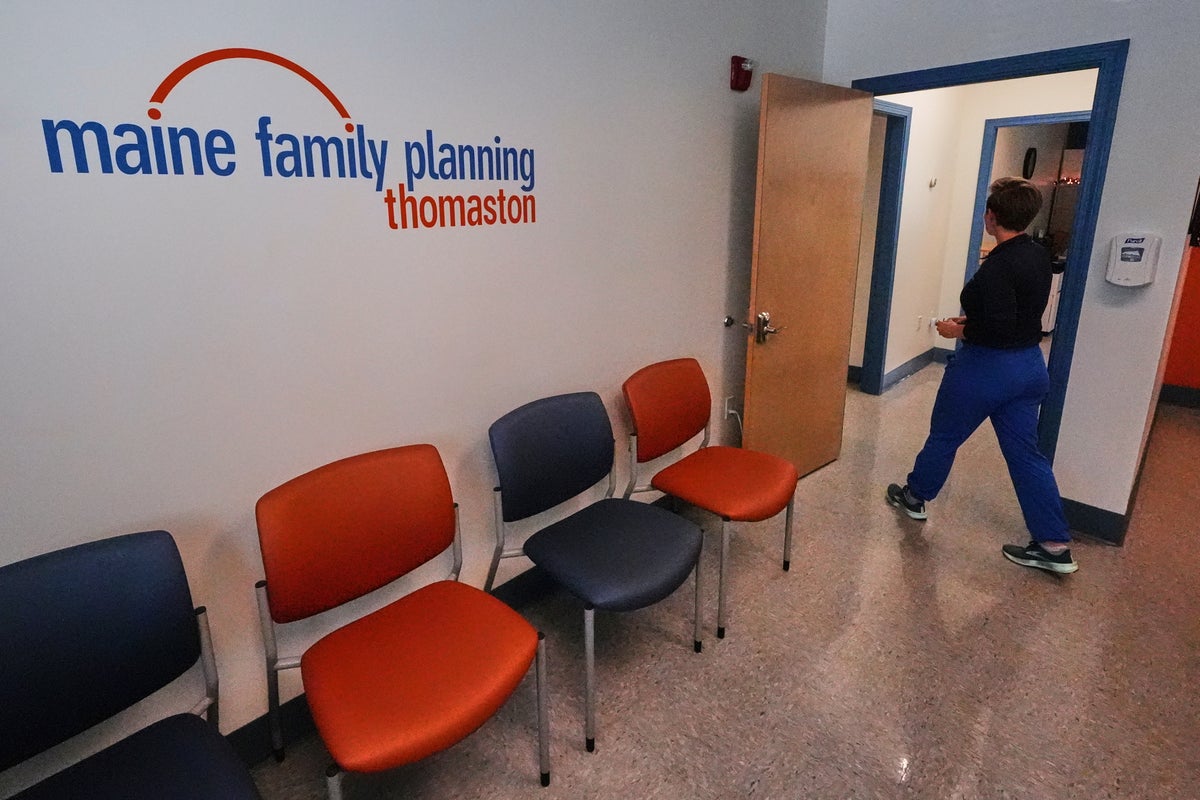
A network of clinics that provides health care in Maine is expected to ask a judge Thursday to restore its Medicaid funding while it fights a Trump administration effort to keep federal money from going to abortion providers.
President Donald Trump's policy and tax bill, known as the “ big beautiful bill,” blocked Medicaid money from flowing to Planned Parenthood, the nation's largest abortion provider. The parameters in the bill also stopped funding from reaching Maine Family Planning, a much smaller provider that offers health care services in one of the poorest and most rural states in the Northeast.
A federal judge ruled last month that Planned Parenthood clinics around the country must continue to be reimbursed for Medicaid funding as the provider wrangles with the Trump administration over efforts to defund it.
Maine Family Planning filed a federal lawsuit last month seeking to restore reimbursements.
Lawyers and representatives for Maine Family Planning say its 18 clinics provide vital services across the state including cervical cancer screenings, contraception and primary care to low-income residents. They also say the funding cut occurred even though Medicaid dollars are not used for its abortion services.
“Without Medicaid, MFP will be forced to stop providing all primary care for all patients — regardless of their insurance status — by the end of October,” the organization said in a statement, adding that about 8,000 patients receive family planning and primary care from the network.
It also said many Maine Family Planning clinics “provide care in very rural areas of the state where there are no other health care providers, and around 70% of their patients rely exclusively on MFP and will not see any other health care provider in a given year.”
In court documents, Anne Marie Costello, deputy director for the Center for Medicaid & CHIP Services, called the request to restore funding “legally groundless” and said it “must be firmly rejected.”
“The core of its claim asks this Court to revive an invented constitutional right to abortion — jurisprudence that the Supreme Court decisively interred — and to do so in a dispute over federal funds,” Costello said.
While advocates of cutting Medicaid for abortion providers focused on Planned Parenthood, the bill did not mention it by name. Instead it cut off reimbursements for organizations that are primarily engaged in family planning services — which generally include things such as contraception, abortion and pregnancy tests — and received more than $800,000 from Medicaid in 2023.
The U.S. Senate’s parliamentarian rejected a 2017 effort to defund Planned Parenthood because it was written to exclude all other providers by barring payments only to groups that received more than $350 million a year in Medicaid funds. Maine Family Planning asserts in its legal challenge that the threshold was lowered to $800,000 this time around to make sure Planned Parenthood would not be the only entity affected.
It is the only other organization that has come forward publicly to say its funding is at risk.
Planned Parenthood's legal fight with the Trump administration over Medicaid funding is still in the court system also.







